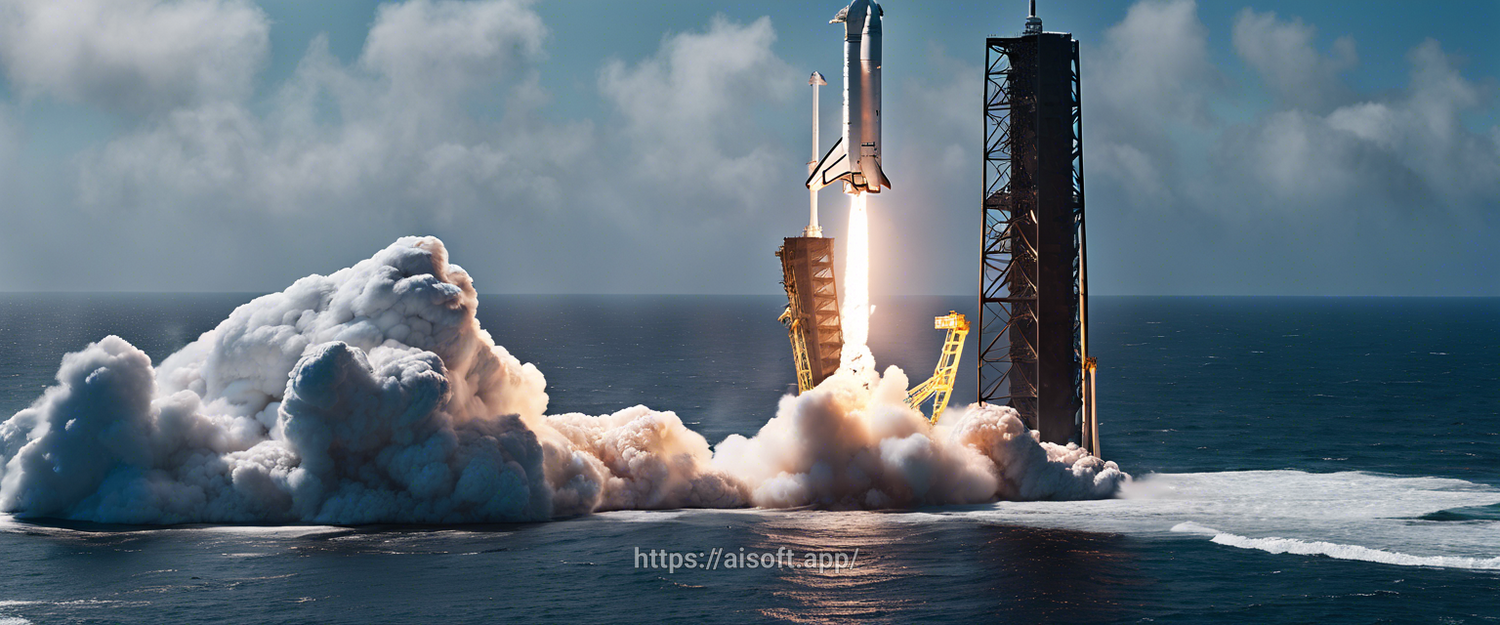SpaceX's Unfortunate Landing: Falcon 9 Rocket Booster Tipped Over
In a significant turn of events, the first stage of a SpaceX Falcon 9 rocket crashed during a landing attempt on a droneship in the Atlantic Ocean last night. This incident marked a notable deviation from the company's exceptional track record of recoveries with their reusable boosters, which has been a hallmark of SpaceX's innovative approach to space travel.
Details of the Incident
The Falcon 9 booster had almost completed its touchdown when it unexpectedly tipped over, resulting in its descent into the ocean. This occurrence has ended a remarkable streak of 267 consecutive successful landings for SpaceX's reusable boosters, as reported by CBS News.
Official Confirmation from SpaceX
At 4:04 AM ET, SpaceX confirmed the failed mission through a post, stating that the booster "tipped over following touchdown." This mission was particularly notable as it was the 23rd launch of this booster series. Despite the landing mishap, the Falcon 9's second stage achieved success by successfully deploying a batch of 21 Starlink satellites into orbit, with 13 of these satellites integrated with the company’s cellular transmission capabilities.
An Adjusted Launch Schedule
Following the incident, SpaceX opted to postpone a second scheduled launch to review data from the unsuccessful landing. This decision underscores SpaceX's commitment to safety and thorough analysis, essential components of their operational philosophy.
Context: Recent Challenges Faced by SpaceX
This setback is part of a sequence of challenges that SpaceX has encountered recently. In July, the Federal Aviation Administration (FAA) temporarily grounded the Falcon 9 due to an explosion in the second stage of one of its rockets. Additional delays were also reported for an essential mission named Polaris Dawn. This mission aimed to send four astronauts through the Van Allen radiation belts and achieve the first-ever private astronaut spacewalk, but was postponed due to a poor weather forecast.
Looking Ahead: Continued Innovation and Resilience
Despite recent setbacks, SpaceX remains committed to pushing the boundaries of aerospace technology. The company’s ability to adapt and learn from challenges is evident in how they prioritize safety and mission success. With plans for upcoming launches and innovative missions on the horizon, SpaceX's resilience might lead to future advancements in space exploration.
Conclusion
SpaceX's latest incident with the Falcon 9 rocket serves as a reminder of the complexities and challenges within the realm of space exploration. As the company navigates these hurdles, its innovative spirit and dedication to improvement will undoubtedly shape the future of space travel.



اترك تعليقًا
تخضع جميع التعليقات للإشراف قبل نشرها.
This site is protected by hCaptcha and the hCaptcha Privacy Policy and Terms of Service apply.